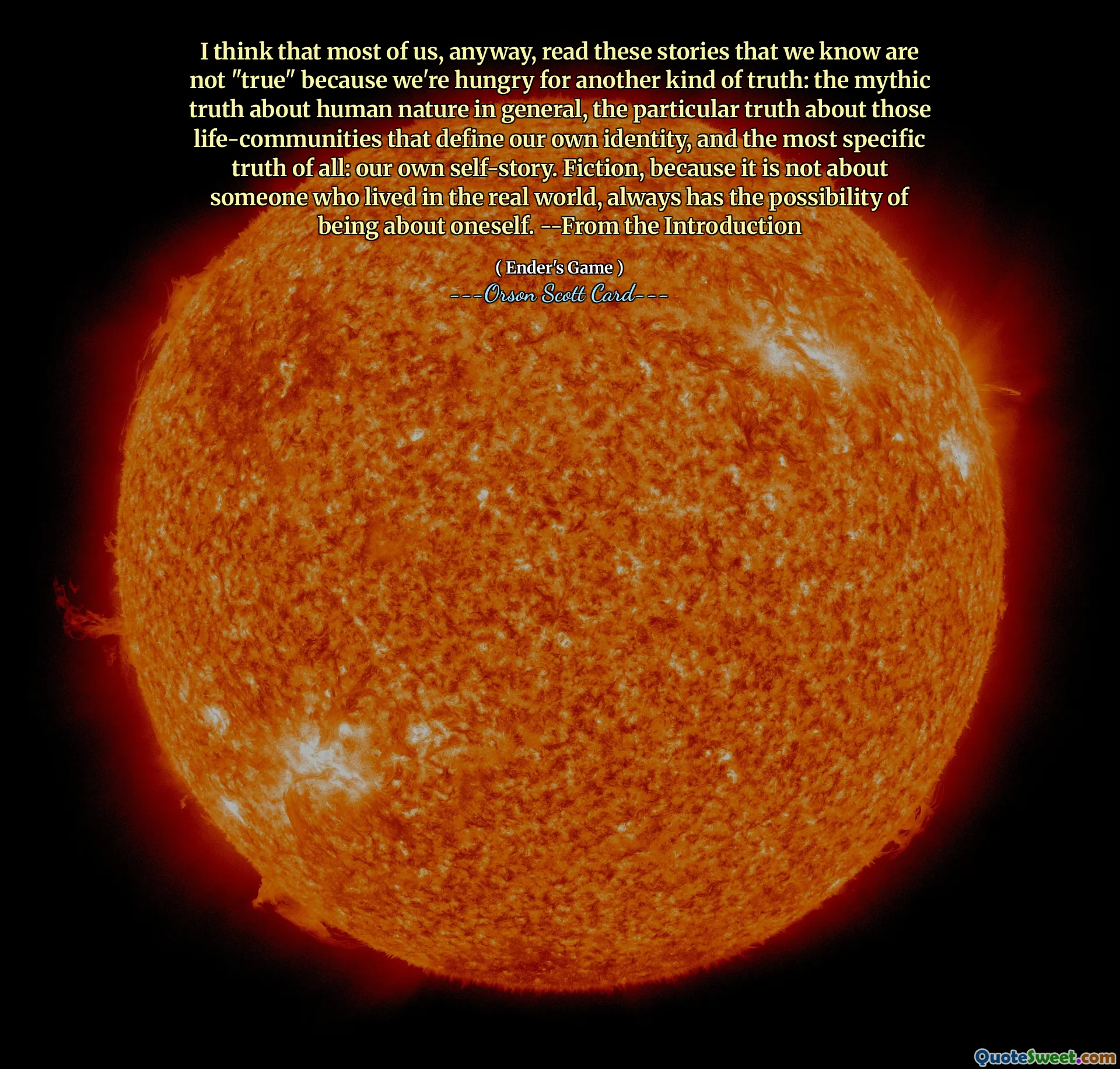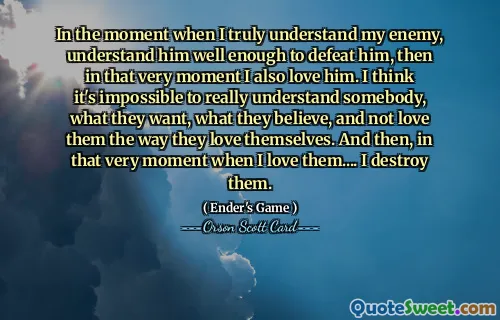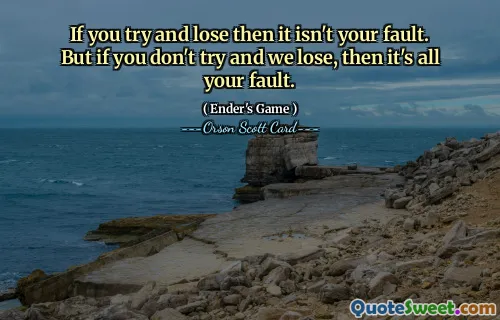
I think that most of us, anyway, read these stories that we know are not "true" because we're hungry for another kind of truth: the mythic truth about human nature in general, the particular truth about those life-communities that define our own identity, and the most specific truth of all: our own self-story. Fiction, because it is not about someone who lived in the real world, always has the possibility of being about oneself. --From the Introduction
In the introduction of "Ender's Game," Orson Scott Card reflects on the allure of fiction, emphasizing that stories, even those recognized as not factual, fulfill a deeper yearning for truth. This mythic truth transcends mere reality, offering insights into human nature and the collective experiences that shape our identities. Through these narratives, readers can connect with broader themes that resonate within themselves and their communities.
Card suggests that fiction’s unique quality lies in its ability to allow readers to see aspects of their own lives and identities within its fabric. Since fictional stories are not tied to real individuals, they create a space for self-reflection and exploration. This personal connection enables readers to interpret character journeys and conflicts as reflections of their own experiences, thus finding meaning in the narratives that unfold on the page.











